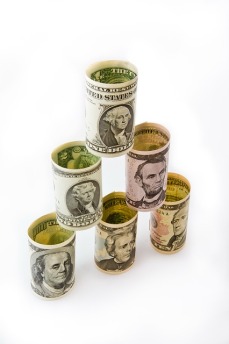We’ve all heard of the saying, “Risk versus Reward,” and for those in any business, that’s a guiding principle. Having always had limited means, I take fewer risks than most in marketing, since, by definition, risks don’t offer guarantees. I’ve had to overcome that to a degree, however, as most everything involved in promoting a book calls for risk, even of one’ s time.
Last month, I participated in an author’s panel at an event. One of the topics that came up was the profit the majority of authors make. With less experience than the other three, I sat back and listened with eagerness, wondering if my lackluster earnings were a reflection of my work. To my relief, their responses were laughs and jokes, making it clear that my meager royalty checks were not the exception.
The general public mainly hears about the big-name authors who make millions per bestseller. Like with all industries, though, the top of that pyramid is very narrow. Underneath lie a plethora of contemporaries who will never see that kind of net worth.

In reality, books don’t sell like hotcakes. Today’s world provides numerous forms of entertainment, not to mention probably the widest array of literature society’s ever known. Thus, it’s difficult to attract readers to pick your book out of the growing mountain.
I became keenly aware of this at the event I mentioned above, which hosted over 150 authors. A book fair, it drew in a record high attendance. We expected a couple thousand, as in years past, so I hoped to have a steady flow of traffic at my table. With the vast supply of options, however, many of the booths—including mine—only had occasional visitors throughout the day.
I’d be lying if I said my expectations weren’t met in terms of sales. In truth, it took more money for gas to get there than I made in royalties. As far as “risk versus reward” goes, the reward didn’t win out. Or did it?
Contemplating the experience, I came to realize “rewarding” isn’t always the same as “profitable.” Profits are made in your bank account; rewards are made in your heart. The standout example from the day that illustrated that was a reaction I received from a young girl. She skimmed Forgetting My Way Back to You’s synopsis on the back cover, and to my surprise, she clutched it to her chest, telling me how excited she was to read it. During all my years of dreaming about becoming an author, I could merely imagine someone looking at my book that way.
If we just viewed writing from a monetary standpoint, it wouldn’t pass the “risk versus reward” test for a lot of us. I’d shudder to calculate how much I make per week, much less per hour. The figures would be devastating, especially if you factored in marketing.
So, aspiring authors, don’t start a novel to rake in a six or seven digit paycheck. It probably won’t happen. That’s why, as my panel agreed, writers have to enjoy their craft and find fulfillment in the dirty work—namely the solitary hours of typing and imagining. Cherish a reader’s glee when he/she discovers your works or falls in love with a character. Take the time to impart why you love what you do to young ones. Those are the real rewards of writing.

2 thoughts on “Profitable versus Rewarding: Is there a Difference?”